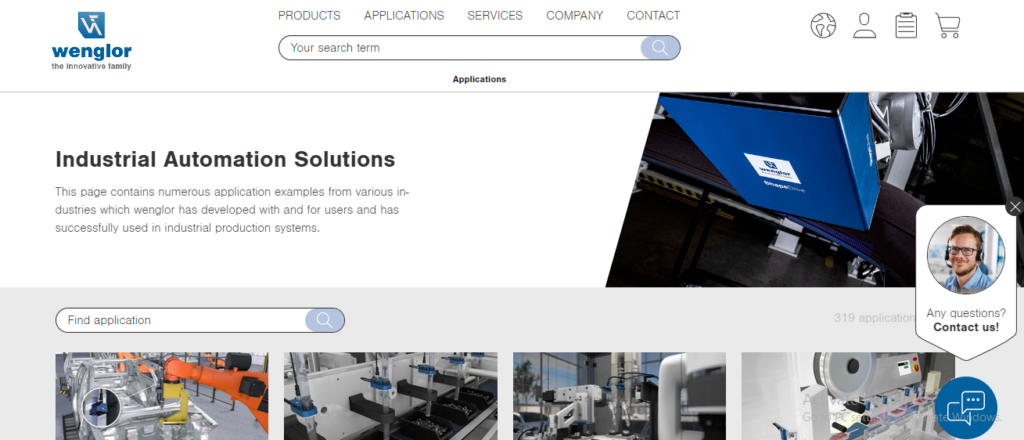This article is based on Best sales techniques every Sales Professional Should Know.
Successful sales professionals must possess excellent communication skills, be able to build rapport and trust with customers, have a strong understanding of their products or services, and be able to adapt to different selling situations.
Some amazing facts about sales
- In the U.S., there are over 14 million sales jobs, making it one of the largest occupations in the country.
- Salespeople who respond quickly to leads are 10 times more likely to convert them into customers.
- 80% of sales require five follow-up calls after the initial meeting, yet 44% of salespeople give up after just one follow-up.
- The average salesperson spends only one-third of their day selling, with the rest of their time spent on administrative tasks, meetings, and other non-selling activities.
- Salespeople who use social media as part of their sales techniques outsell their peers by 78%.
- In a B2B sale, an average of 6.8 decision-makers are involved in the buying process.
- Only 13% of customers believe a salesperson can understand their needs.
- Personalized email subject lines increase open rates by 26%.
- Salespeople who use storytelling as part of their sales pitch are 30 times more likely to be remembered than those who use statistics.
- The average length of a B2B sales cycle is 102 days.
Best sales techniques: Every Sales Professional Should Know
A sales methodology is a structured approach to selling that outlines the steps and processes involved in the sales process.
It provides a framework for sales professionals to follow and helps them to be more effective in their sales efforts.
There are many different sales methodologies, but some of the most commonly used include.
1. Solution or application-based selling
This approach focuses on understanding the customer’s needs and providing customized solutions that meet those needs.
Solution- or application-based selling examples like Wenglor Sensoric GMBH solve industrial problems through its products and by implementing factory automation.

2. Challenger Sale
This approach involves challenging the customer’s status quo and introducing new ideas and perspectives to help them achieve their goals.
The Challenger Sale is a sales methodology outlined in the book “The Challenger Sale: Taking Control of the Customer Conversation” by Matthew Dixon and Brent Adamson, published in 2011.
5 key Points About Challenger Sale
- Challenger: The Challenger salesperson is characterized by their ability to teach, tailor, and take control of the customer conversation. They are unafraid to challenge the customer’s assumptions and push them out of their comfort zone.
- Teach: Challengers are skilled at educating their customers about industry trends, best practices, and potential solutions to their problems.
- Tailor: Rather than offering generic solutions, Challengers tailor their approach to each customer’s specific needs and challenges. They use their deep understanding of the customer’s business to customize their recommendations and demonstrate how their products or services can address the customer’s unique pain points.
- Take control: Challengers are assertive in guiding the sales conversation. They’re not passive order-takers; instead, they lead the discussion, steering it toward areas where they can provide the most value.
- Relationship Building: While Challenger salespeople may not prioritize building personal relationships in the same way as other sales approaches, they do focus on building credibility and trust through their expertise and insights.
3. The Sandler selling methodology
The Sandler Selling System is a sales methodology that was developed by David Sandler in the 1960s.
It is a consultative selling approach that emphasizes building trust and rapport with the customer, asking probing questions, and uncovering the customer’s pain points.
4. SPIN Selling
This approach involves asking questions to uncover the customer’s situation, problems, implications, and needs, and then using that information to provide tailored solutions.
SPIN Selling” is a sales methodology developed by Neil Rackham that focuses on asking effective questions to guide the sales process.
5 key Points About SPIN Selling
- Situation Questions: These questions aim to gather information about the customer’s current situation, such as their existing processes, challenges, and goals.
- Problem Questions: Problem questions delve deeper into the customer’s pain points and challenges. They help identify specific problems or areas where the customer is experiencing difficulty or dissatisfaction.
- Implication Questions: Implication questions explore the consequences or effects of the customer’s problems. They help the customer understand the potential risks or costs associated with not addressing their issues.
- Need-Payoff Questions: Need-payoff questions focus on the positive outcomes or benefits that the customer would experience by solving their problems. These questions help the customer envision the value of your solution.
- Focus on Needs: SPIN Selling emphasizes the importance of uncovering and addressing the customer’s needs rather than focusing solely on selling features or benefits.
5. Strategic Selling
This approach involves identifying key decision-makers and influencers within an organization and working to build relationships with them to close a sale.
“Strategic Selling” is a sales methodology developed by Robert B. Miller and Stephen E. Heiman that focuses on understanding and addressing the complex buying process of large organizations.
5 key Points About Strategic Selling
- Focus on Relationships: Strategic Selling emphasizes building strong relationships with key stakeholders within the customer’s organization. This involves understanding their roles, goals, and challenges to effectively align your sales approach with their needs.
- Multiple Decision Makers: It recognizes that large organizations often involve multiple decision-makers with varying priorities and agendas.
- Qualification of Opportunities: Strategic Selling emphasizes the importance of thoroughly qualifying opportunities to ensure that sales efforts are focused on deals with a high probability of success.
- Solution Positioning: It advocates for positioning your solution as a strategic investment that addresses the customer’s long-term objectives and delivers measurable value.
- Strategic Account Planning: Strategic Selling encourages sales professionals to develop comprehensive account plans that outline their approach to engaging with key accounts over time.
6. MEDDIC Selling
This approach focuses on qualifying leads based on metrics such as the customer’s budget, authority, need, timeline, and decision-making process.
MEDDIC Selling is a methodology used by sales professionals to qualify leads and opportunities effectively.
5 key Points About MEDDIC Selling
- Metrics: Focus on understanding the prospect’s key performance indicators (KPIs) and metrics. This involves identifying the specific metrics that the prospect uses to measure success or track progress.
- Economic Buyer: Determine who holds the budget and ultimate decision-making authority within the prospect’s organization. This ensures that efforts are focused on engaging with the individuals who have the power to approve the sale.
- Decision Criteria: Identify the criteria that the prospect will use to make a purchasing decision. This involves understanding their priorities, preferences, and specific requirements for a solution.
- Decision Process: Understand the steps and stages involved in the prospect’s decision-making process. This includes knowing who is involved, what actions need to be taken, and the timeline for making a decision.
- Identify Pain: Uncover the prospect’s pain points and challenges that your solution can address. This involves asking probing questions to understand the prospect’s needs and demonstrating how your offering can provide value and solve their problems.
7. Customer-Centric Selling
This approach focuses on putting the customer’s needs and desires first and tailoring the sales process to their specific preferences.
5 Points About Customer-Centric Selling
- Focus on the Customer’s Needs: Customer-centric selling revolves around understanding and addressing the unique needs and preferences of individual customers. Instead of pushing products or services, the approach involves actively listening to customers, empathizing with their challenges, and offering tailored solutions that genuinely add value to their lives or businesses.
- Building Relationships: Rather than treating each interaction as a transaction, Customer-Centric Selling emphasizes building long-term relationships with customers. This involves fostering trust, demonstrating expertise, and consistently delivering exceptional service.
- Personalization: Personalization is a cornerstone of Customer-Centric Selling. It involves customizing the sales process, marketing messages, and product offerings to match the specific needs, preferences, and buying behaviors of individual customers.
- Value Proposition: Customer-centric selling focuses on communicating the unique value proposition of products or services in a way that directly addresses the customer’s pain points or goals.
- Continuous Improvement: Customer-centric selling is an iterative process that requires continuous learning and improvement. Businesses must gather feedback from customers, analyze sales performance metrics, and adapt their strategies accordingly.
8. Conceptual Selling
This methodology emphasizes the importance of understanding a customer’s needs and providing solutions that fit their overall strategic objectives.
5 key Points About Conceptual Selling
- Understanding Customer’s Conceptual Needs: Conceptual Selling focuses on understanding the customer’s underlying concepts, objectives, and challenges rather than just their explicit needs.
- Consultative Approach: Conceptual Selling is highly consultative. It involves engaging in meaningful conversations with customers to explore their vision, aspirations, and pain points.
- Customized Solutions: Instead of promoting one-size-fits-all solutions, Conceptual Selling emphasizes tailoring offerings to meet the unique needs and circumstances of each customer. Sales professionals collaborate closely with customers to co-create customized solutions that address their specific requirements and deliver tangible benefits.
- Value-Based Selling: Conceptual Selling places a strong emphasis on articulating the value proposition of products or services in terms of the benefits they deliver to the customer’s business.
- Building Strategic Relationships: Conceptual Selling involves building strategic relationships with customers based on mutual trust, collaboration, and shared objectives. Sales professionals invest time in understanding the customer’s industry, market trends, and competitive landscape.
9. Inbound Selling
This approach emphasizes the use of inbound marketing tactics to attract and engage potential customers, rather than relying on outbound sales tactics.
5 Key Points About Inbound Selling
- Customer-Centric Approach: Inbound Selling prioritizes the needs and preferences of the customer. Rather than traditional outbound methods that interrupt potential buyers with cold calls or unsolicited emails, inbound selling focuses on attracting interested prospects through valuable, relevant content and personalized experiences.
- Content Marketing: Content plays a central role in Inbound Selling. Businesses create and distribute high-quality, informative content such as blog posts, videos, whitepapers, and webinars that address the pain points and interests of their target audience.
- Lead Generation and Nurturing: Inbound Selling relies on lead generation and nurturing techniques to guide prospects through the buyer’s journey. Through tactics such as search engine optimization (SEO), social media marketing, and email marketing, businesses attract leads to their website or other digital platforms.
- Marketing Automation: Marketing automation tools play a significant role in Inbound Selling. These tools help streamline and automate repetitive tasks such as lead scoring, segmentation, and email workflows.
- Data-Driven Insights: Inbound Selling relies on data-driven insights to continuously refine and optimize strategies. By analyzing metrics such as website traffic, conversion rates, and customer engagement, businesses gain valuable insights into the effectiveness of their inbound efforts.
10. Account-Based Selling
Account-based selling is a very focused selling method that works with specific client requirements.
5 Key Points About Account-Based Selling
- Targeted Approach: Account-Based Selling (ABS) focuses on targeting specific high-value accounts or companies rather than casting a wide net. Sales and marketing efforts are concentrated on understanding and engaging with key decision-makers within these target accounts.
- Cross-Functional Collaboration: Account-based selling requires close collaboration between sales, marketing, and other departments within the organization. Sales teams work in tandem with marketing to develop personalized campaigns, create tailored content, and orchestrate multi-touchpoint engagement strategies.
- Deep Understanding of Accounts: In Account-Based Selling, it’s essential to gain a deep understanding of the target accounts, including their business goals, pain points, organizational structure, and buying processes. Sales teams conduct thorough research and analysis to identify key stakeholders, uncover relevant insights, and tailor their approach accordingly.
- Relationship Building: Account-Based Selling prioritizes building strong, long-lasting relationships with key stakeholders within target accounts. Sales professionals invest time in nurturing these relationships, engaging in meaningful conversations, and providing value-added insights and solutions.
- Measurement and ROI: Account-based selling emphasizes measurement and accountability to track the effectiveness of sales and marketing efforts. Businesses establish key performance indicators (KPIs) and metrics to evaluate the success of their account-based initiatives, such as pipeline velocity, deal conversion rates, and customer lifetime value.
This methodology involves identifying a specific target account and tailoring the sales approach to meet their specific needs and preferences.
Why adopt a sale methodology?
Sales methodologies help teams to better understand customer needs and tailor their approach to meet those needs, leading to more successful sales interactions.
A well-defined sales methodology provides a systematic approach to selling that can increase sales, improve customer satisfaction, position in customer minds, and drive business growth.
By implementing a sales methodology, sales teams can become more organized and efficient, reducing wasted time and effort.
A precise sales process can also improve collaboration between team members and help to identify areas for improvement.
Changing aspects of sales
Sales is shifting towards a more customer-centric approach that emphasizes personalization and relationship-building, rather than traditional hard-selling tactics.
This requires a greater focus on understanding customer needs and providing tailored solutions, as well as leveraging technology to improve the sales process.







